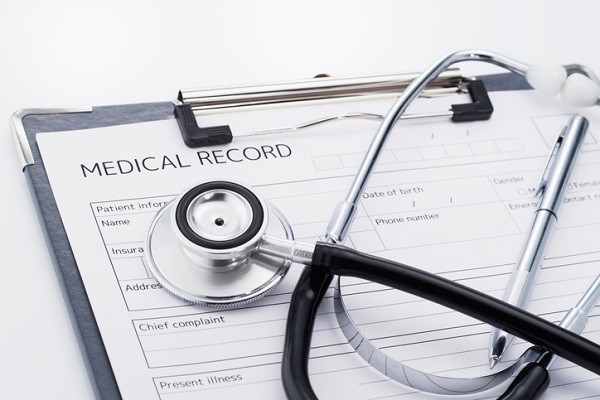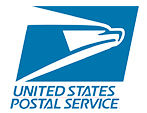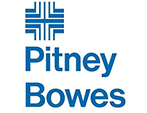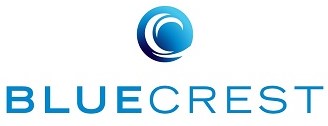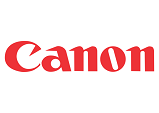What is Protected Health Information (PHI)?
Protected Health Information (PHI) encompasses any information in a medical record or other health-related information that can be used to identify an individual. This includes everything from medical histories, test results, insurance information, and other personal health information.
What is Considered Protected Health Information?
Personal Data (PHI) that falls under HIPAA includes, but is not limited to, the following identifiers:
- Names and Geographical Identifiers: Full names, initials, addresses, and even zip codes in certain contexts.
- Dates: Birthdates, treatment dates, admission and discharge dates, and death dates.
- Contact Information: Phone numbers, fax numbers, and email addresses.
- Social Security and Medical Record Numbers: Unique numbers that can trace back to an individual’s identity or medical history.
- Health Insurance Information: Beneficiary numbers and account details related to healthcare payments.
- Biometric Identifiers: Fingerprints, voiceprints, and even retinal patterns.
- Photographic Images: Full-face photos and any comparable images.
- Internet Protocols: Web URLs and IP addresses that could reveal personal information.
- Vehicle and Device Identifiers: License plate numbers and serial numbers of personal medical devices.
In the digital age, ensuring the privacy and security of PHI is not just a best practice; it’s a legal requirement under the Health Insurance Portability and Accountability Act (HIPAA).
What is HIPAA?
HIPAA, the Health Insurance Portability and Accountability Act of 1996, sets the standard for protecting sensitive patient data. Any business that deals with protected health information (PHI) must ensure that all the required physical, network, and process security measures are in place and followed. This regulation is crucial for healthcare providers, insurance companies, and their business associates, emphasizing the importance of legal compliance, patient privacy, and data security.
The Significance of HIPAA Compliance
Compliance with HIPAA is not just about adhering to legal requirements; it’s about building a foundation of trust and security in the healthcare industry. It distinguishes compliant organizations as trustworthy, enhancing their reputation and competitive edge. For those involved in handling PHI, understanding and implementing HIPAA’s guidelines is essential. This includes ensuring the secure handling of PHI in all forms, including direct mail, a topic thoroughly explored in this article on HIPAA rules for sending direct mail. Adhering to HIPAA standards safeguards patient information against breaches and misuse, reinforcing the ethical responsibility businesses have towards protecting individual privacy.
Best Practices for Companies Dealing with PHI in Mailing
When handling mail that contains Protected Health Information (PHI), companies must prioritize a comprehensive approach to security, encompassing technical, physical, and procedural safeguards. Ensuring compliance and protecting patient privacy involves several key practices:
- Security Measures: Implement robust security measures that include encryption of electronic PHI and secure handling procedures for physical documents. This ensures that PHI remains confidential and is only accessible to authorized individuals.
- Technical Security: Utilize advanced technical security measures, such as secure email services for electronic communications and tracking services for mailed documents. These technologies help in monitoring the whereabouts of PHI and in verifying its secure delivery.
- Physical Security: Opt for secure envelopes that do not allow visibility into the contents within. Physical security also involves secure storage and disposal methods for PHI documents, ensuring they are not accessible to unauthorized personnel.In addition to these security-focused practices, companies should also:
- NeverPostcards: Avoid using postcards for sending any PHI, as they offer no protection against unauthorized viewing.
- Avoid Overstuffed Envelopes: Do not overfill envelopes with multiple documents. Overstuffing can lead to tears or damage, potentially exposing PHI.
- Do Not Print Patient Data on Outer Covers: Ensure that no PHI is printed on the outside of mailing envelopes or packages. Only include the necessary information for mailing, such as the recipient’s name and address, without revealing any sensitive health information.
- Procedural Security: Develop and follow strict procedural guidelines for handling PHI. This includes training staff on HIPAA compliance, conducting regular audits of mailing processes, and establishing clear protocols for responding to potential breaches.
By focusing on these best practices—emphasizing security measures, technical and physical security, and procedural safeguards—companies dealing with PHI can significantly enhance the protection of patient information. Adhering to these guidelines not only meets HIPAA’s rigorous standards but also fosters trust and reliability, reinforcing the company’s commitment to safeguarding patient privacy.
Secure Your PHI with Expert HIPAA Compliant Printing and Mailing Services
In the healthcare industry, where the stakes are perpetually high, ensuring the security and confidentiality of Protected Health Information (PHI) is paramount. The complexities of HIPAA compliance add layers of responsibility to how healthcare providers and their associates handle patient information, especially when it comes to printing and mailing patient communication. With so much on the line, outsourcing your needs to a HIPAA compliant printing and mailing service offers peace of mind, knowing that your PHI is safeguarded by industry professionals.
Rest at Ease with Professional PHI Handling
Choosing a compliant printing and mailing service means entrusting your sensitive data to experts who understand the intricacies of privacy laws and are equipped with the latest security measures. These professionals are not just service providers; they are custodians of your patients’ privacy, ensuring that every piece of information is handled with the utmost care and in strict compliance with regulatory standards. This not only minimizes the risk of data breaches and non-compliance penalties but also reinforces your commitment to protecting patient information.
The Advantages of Partnering with a HIPAA Compliant Mailing Service
For healthcare and medical businesses, the decision to work with a compliant mailing service brings a multitude of benefits, streamlining operations while ensuring compliance and security. Here’s how such a partnership can transform your patient communications:
- Efficient Time and Cost Savings: Leveraging the expertise of a specialized service eliminates the need for in-house resources to manage complex mailing processes, leading to significant savings in both time and costs.
- Minimize Potential Risks: A compliant mailing service understands the nuances of privacy laws, greatly reducing the risk of data breaches and non-compliance penalties.
- Expanded Service Offerings: These services often come with a range of options tailored to healthcare needs, from secure electronic delivery to traditional mail, enhancing your ability to communicate effectively with patients and partners.
- Enhance Operational Efficiency: Outsourcing to experts in HIPAA-compliant mail handling streamlines your print and mail processes, allowing your staff to focus on core healthcare services.
- Facilitate Regulatory Compliance: With a partner that stays abreast of HIPAA regulations, you’re better positioned to adapt to legal changes and maintain compliance effortlessly.
- Accelerate Revenue Cycles: Efficient billing and statement delivery can shorten payment cycles, improving cash flow and revenue for your healthcare business.
- Protect Privacy and Security: A compliant mailing service ensures that every piece of communication is handled with the utmost care, maintaining data confidentiality and integrity.
- Enhanced Security Measures: Industry professionals employ state-of-the-art security protocols, both physical and digital, to protect PHI at every stage of the printing and mailing process.
- Compliance Assurance: Stay up-to-date with the latest HIPAA regulations without the hassle. HIPAA compliant services ensure that your operations adhere to all legal requirements, reducing the risk of costly violations.
- Peace of Mind: Knowing that your PHI is in capable hands allows you to rest easy. Professional HIPAA compliant services take the worry out of handling sensitive patient information, giving you the confidence that your data is secure.
In a sector where trust is everything, ensuring the confidentiality and security of PHI is crucial. Outsourcing your printing and mailing needs to a HIPAA compliant provider not only secures your data but also strengthens the trust between you and your patients. With so much at stake, partnering with industry professionals offers a secure, efficient, and compliant solution to handle your sensitive information.
Navigating HIPAA Compliant Printing and Mailing with EOS
A Closer Look at EOS’s Healthcare Solutions
EOS provides a comprehensive suite of services tailored to the healthcare sector’s unique requirements, facilitating a range of essential communications:
- Patient Referral Letters: Streamlining the referral process to ensure timely and coordinated patient care.
- ID Cards: Low cost durable PVC cards branded for your company and quickly deployed.
- Multiple language support ensures your patients understand what you want them to know.
- Explanation of Healthcare Benefits (EOB): Making benefits information accessible and understandable, helping patients navigate their coverage.
- Checks: Ensuring secure and efficient processing of payments, contributing to smoother financial operations.
- Patient Bills & Statements: Enhancing clarity and transparency in billing, fostering trust and understanding between patients and providers.
- Physician Annual Surveys: Supporting quality improvement efforts through the collection of insightful feedback from medical professionals.
Let Us Handle Your Patient Communications
Navigating HIPAA guidelines while managing patient communications can be challenging. With our expertise in HIPAA compliant print and mail services, we take the burden off your shoulders. Let us handle your patient communications. We’re well-versed in HIPAA guidelines and committed to providing secure, efficient, and compliant solutions. Schedule a HIPAA Compliant Print and Mail Consultation today and take the first step towards enhancing your operational efficiency and compliance.

